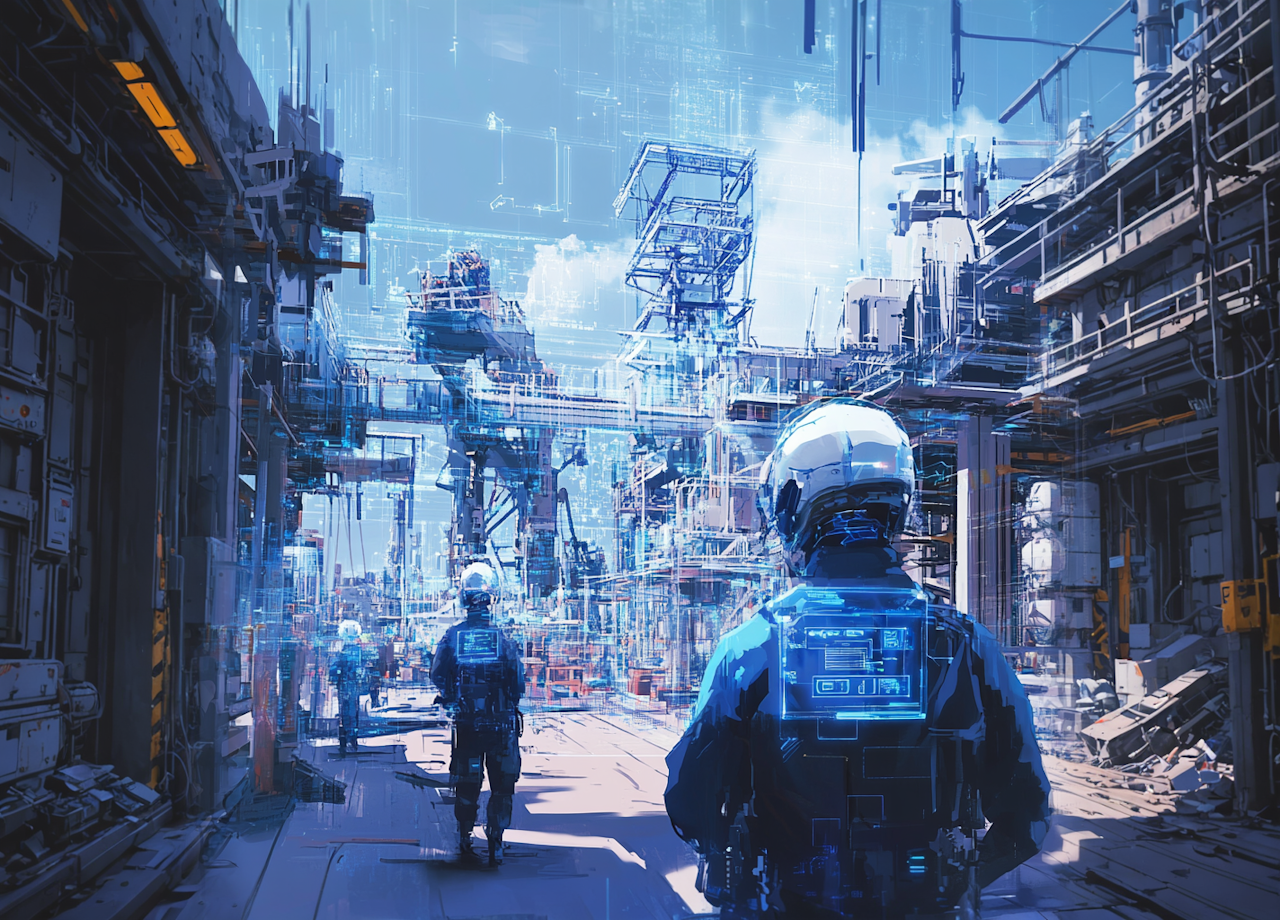A technological revolution is underway, poised to reshape the construction industry as we know it. The perennial challenge of labour shortages and skills gaps has left the sector grappling for solutions, but the advent of artificial intelligence (AI) offers a beacon of hope. As we stand on the cusp of 2025, AI is not just a tool; it is the architect of a new era in construction, promising to bridge the talent gap and redefine industry norms.
Current State of the Construction Industry and Talent Gap
The construction industry has long been a cornerstone of economic development, yet it faces unprecedented challenges. Labour shortages and skills gaps are not merely logistical hurdles; they are economic roadblocks impacting project timelines and costs. According to Deloitte Insights, the push for urbanisation and infrastructure development has intensified these issues, with demand outpacing the supply of skilled workers. The economic implications are stark, as delayed projects translate to increased costs and lost opportunities.
AI as a Solution
Enter AI, a transformative force in the construction sector. By automating repetitive tasks and enhancing safety measures, AI is revolutionising productivity in ways previously unimaginable. From predictive analytics to real-time monitoring, AI technologies are streamlining operations and reducing human error. As highlighted by Tribe AI, AI applications are diverse, encompassing everything from task management to site safety, ultimately leading to more efficient and cost-effective project execution.
Key Players and Innovations
The landscape of AI in construction is populated by key players and innovators who are driving change. Companies like Buildots and autonomous robotics firms are at the forefront, leveraging AI to enhance construction processes. These innovations include robotics, Building Information Modelling (BIM) integration, and 3D printing, which are not only speeding up construction but also ensuring precision and sustainability, as noted by Construction Dive.
Case Studies and Real-World Applications
Practical examples abound of AI’s successful integration into construction. Case studies, such as those documented by OpenAsset, demonstrate AI’s tangible benefits in projects worldwide. These implementations have shown marked improvements in efficiency, safety, and cost savings, proving that AI is not a futuristic concept but a present-day reality driving the industry’s evolution.
Future Outlook and Challenges
Looking ahead, the future of AI in construction is bright yet fraught with challenges. As AI adoption increases, the demand for skilled AI professionals to design and manage these technologies grows. The integration of AI systems into existing workflows presents another hurdle, requiring strategic planning and investment. According to Viewpoint, the industry’s ability to adapt to these changes will determine the pace and success of AI implementation.
In conclusion, the transformative potential of AI in the construction industry is undeniable. It offers a viable solution to the talent gap, promising not only to enhance productivity but also to redefine the industry’s future. As we move forward, continued innovation and investment in AI technologies will be crucial. Industry stakeholders must embrace these advancements and prioritise skill development to fully realise the benefits of AI, ensuring that the construction sector not only survives but thrives in the years to come.
In Other News…
OpenAI Temporarily Prevails in Copyright Suit Over AI Training
OpenAI has successfully defended against a copyright infringement lawsuit filed by several news organisations, which alleged unauthorised use of their content for training AI models. The court’s decision currently favors OpenAI, though the plaintiffs may pursue further legal action.
Read More
The Beatles’ AI-Enhanced Song ‘Now and Then’ Earns Grammy Nods
The Beatles’ latest release, “Now and Then,” featuring AI-assisted restoration of John Lennon’s vocals, has been nominated for two Grammy Awards. This milestone highlights the growing integration of AI technology in the music industry.
Read More
AI Startup Conflixis Develops Tools to Identify Unethical Medical Practices
Conflixis, an emerging AI startup, is creating advanced tools to help hospitals detect and prevent unethical behavior among medical professionals. By analysing patterns and anomalies in medical practices, their technology aims to enhance patient safety and uphold healthcare standards.
Read More
Alaska’s Policy Document Cites AI-Generated Misinformation
A recent policy document from Alaska included statistics generated by AI that were later found to be inaccurate. This incident underscores the challenges and potential risks associated with relying on AI-generated data in official policymaking.
Read More


